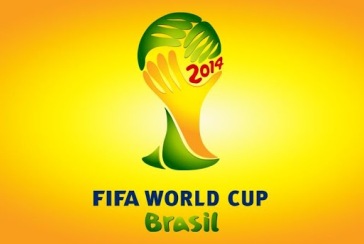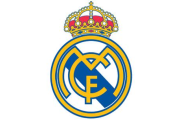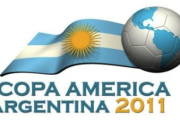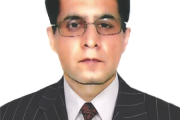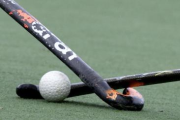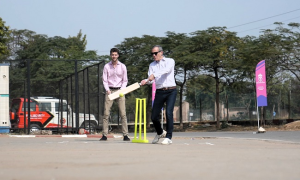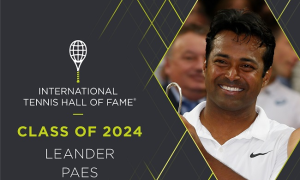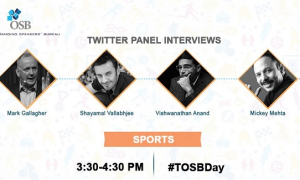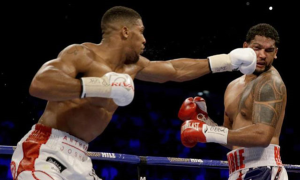18th June, 2014: Short of mankind landing on Mars or aliens landing on earth anytime soon, the Soccer World Cup final is the closest thing the world has to a collective viewing experience. It is the planet’s most widely viewed sporting event. Five-time World Champion, two-times runner-up, and the only country to have taken part in all World Cup editions, Brazil is hosting soccer’s 2014 World Cup, with 32 nations competing including 13 from Europe. An estimated 500,000 fans are expected to pour into the country to witness the month-long tournament comprising a total of 64 matches in twelve cities across Brazil in either new or redeveloped stadiums.
The Football Fever is catching up in India quickly as well, with the Indian Super League entering into a strategic partnership with the English Premier League, the world’s most popular and successful football league, to bring its best practices to India under an exchange programme. As avenues for the game open up in the country, the alliance will open up international quality of infrastructure, apparel and sporting gear. Always a key player in top-level competitive sports, LANXESS offers several solutions for players, fans and organisers alike.
What is football without the ball? Pele to Ronaldo to Messi, they are all actually running around after a bubble made of butyl rubber (BTR), a unique specialty synthetic rubber made by LANXESS which happens to be the material of choice to keep the moisture out and the air in.
Footwear is probably the most important part of a soccer player’s outfit. Incorporated in the soles of modern soccer shoes are high-performance plastics such as Tepex which reinforces the sole, yet remains extremely lightweight. Ethylene-vinyl acetate rubber (EVM) provides the cushioning and stabilizing effect.
All soccer shoes have exchangeable or molded studs of some kind underneath the soles to provide sufficient traction against slipping. Special LANXESS plastic and rubber products such as Levapren are used to fabricate the different types of studs tailor-made to specific types of playing field. The exchangeable studs, usually made of plastic or rubber, are inserted into the sole individually. In the case of molded studs, the rubber or plastic structures are part of the sole and cannot be removed. Shoes for artificial turf are fitted with numerous small studs.
Professional soccer cannot be played on sub-standard surfaces. The ultra-smooth surface of artificial turf and modern hard courts permit a much faster game and better ball control while ruling out unpleasant surprises for the players. Polymers such as polypropylene have proven ideal for the artificial blades of grass, and to ensure that they stay green despite rain and sun, many manufacturers opt for Bayferrox or Colortherm inorganic pigments from LANXESS. Keltan granules are incorporated into some artificial turf surfaces, because this ethylene-propylene rubber (EPDM) makes the surface softer and reduces the risk of injury in the event of tackles.
LANXESS’ products are so integral to soccer that its reach extends even to the fans. LANXESS’ Durethan range of polyamides is frequently used to fabricate stadium seating. A polyamide seat can bear up to 600 kilograms so as to withstand the dynamic loads exerted by a fan sitting, jumping up, cheering and occasionally slumping back down in disappointment. Weather may play spoilsport with the game on the field but not the stands. Hailstones, ice, rain, snow and hours of sun have no effect on the plastic shells which are also almost totally non-flammable. Injection-molded in a single shot, the seats do not have any sharp edges or seams. A combination of different LANXESS products, such as Macrolex, Levagard and Disflamoll, also enable these seats to be designed in any color.
From seats to shoes – turfs to balls – LANXESS’s presence in soccer is indispensable yet imperceptible.
Tags: 2014 FIFA World Cup, Brazil, FIFA World Cup, Football Fever, LANXESS, Messi, Pele, Ronaldo, Soccer World Cup, Sport, Sports

